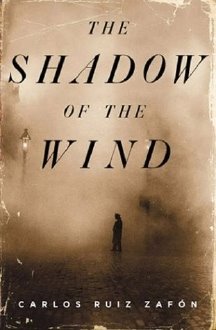 There's the Pearl River swamp, with turtles and alligators, a statuesque heron and some fetching racoons, but the tour boat captain baits them with marshmallows to entice them to pose. There is the Elysian Fields Avenue Walker Percy wrote of in The Moviegoer, but at the corner of Elysian Fields and St. Claude, which used to be Bon Enfants, where Percy's character Binx Bolling considers an African American walking out of a church on Ash Wednesday and wonders why the man is there, I saw no church. Instead, at this lyrically named intersection there are gas stations on three corners and an auto supply shop on the 4th. Of course no one says a novel, or a legend, for that matter, has to be true to fact.
There's the Pearl River swamp, with turtles and alligators, a statuesque heron and some fetching racoons, but the tour boat captain baits them with marshmallows to entice them to pose. There is the Elysian Fields Avenue Walker Percy wrote of in The Moviegoer, but at the corner of Elysian Fields and St. Claude, which used to be Bon Enfants, where Percy's character Binx Bolling considers an African American walking out of a church on Ash Wednesday and wonders why the man is there, I saw no church. Instead, at this lyrically named intersection there are gas stations on three corners and an auto supply shop on the 4th. Of course no one says a novel, or a legend, for that matter, has to be true to fact.Music doodles, blasts, trills, thumps, sings, swings, and soars, and not just on Frenchman or the more vulgar Bourbon Street. Young and some older musicians ride their bikes with instruments strapped to their backs - drums, horns, shapes I can't identify. On Sunday, Royal Street is blocked to cars and a duo of women set up with a violin and a guitar play through the afternoon. Closer to Canal Street, Roslyn croons a folk song and plucks a thumb piano while her partner David blows harmonica. On another corner a solo clarinetist wails the classic, Basin Street Blues...land of dreams, New Orleans. Klezmer at another spot, plain old folk-rock guitar/bass/ trio at still another.
If the streets seem dirty after a weekend that included the Bayou Classic, it isn't because there are no street sweepers out first thing in the morning swishing sudsy water over the pavement and sidewalks. The Quarter retains a long lived in, wel-lused ambiance and December evenings can be just as steamy as Tennessee Williams made them seem with his sweating Stanley in "A Streetcar Named Desire".
The music, the weather and yes, the food. Much as I wanted to resist clichés such as Cafe du Monde, I'm glad that the aroma of frying sweet dough drew me in on a quieter Monday morning for coffee and a small plate of beignets that stayed hot and crispy under their drift of powdered sugar. In addition to that particular, "When you're in New Orleans you have to try..." was the muffaletta from Central Grocery, and the blackened shrimp at Felix's. But the turtle soup at the celebrated restaurant in the lovely, shaded Garden District ... was it really turtle? Not according to the gentleman who kindly invited me for a drink when I expressed interest in seeing the property where Tennessee Williams had lived. "They haven't had a turtle in that place for over 40 years," said this self-described gourmet, whose art-filled house adjoins playwright Williams' former abode.
My sister likes to choose places she has heard of. Many other travellers too, especially now with easily available online guides like Tripadvisor, flock to places they've heard of, arriving with expectations, perhaps an image, an anticipated flavour, and the reality does not always meet expectation. The hefty foursome next to me at Cafe du Monde, for example, expressed disdain at what they called the fancy name of the place. Had they forgotten that New Orleans was once French, that the use of French words like rue for street and librairie for bookstore are not an affectation but a carryover from French roots? Sadly, no one seems to speak French anymore, not even in the French Quarter which is a bit of a misnomer itself, said one acquaintance, because the prominent if slightly fading architecture was created during Spanish rule. The balconies and galleries recall Barcelona and old Havana.
Lance, a Maitre d' who kept me company while I sipped wine in a bar T.W. frequented, said that people come to New Orleans to consider their own possibilities, to maybe invent themselves. Ironic, really, considering the masks in store windows and in stalls at the French Market, another misleading tag, since it is really more of a flea market. There's the mask, and not far beneath beneath the actual features. What is real? Authentic? Lance took out his phone to show me a document that proved there really was once an intersection called Elysian Fields and Bon Enfants. As for the non-conventional, and perhaps not really official guide at St. Louis Cemetery #1, he not only told good stories, he removed the bricks from tombs to prove, with the aid of our flash cameras, that layers of bones did indeed lay inside.
"It is impossible to say why he is here. Is it part and parcel of the complex business of coming up in the world, or is it because he believes that God himself is here at the corner of Elysisan Fields and Bon Enfants? Or is he here for both reasons: through some dim dazzling trick of grace, coming for one and receiving the other as God's own importunate bonus? It is impossible to say."
The Moviegoer, Walker Percy.
























































